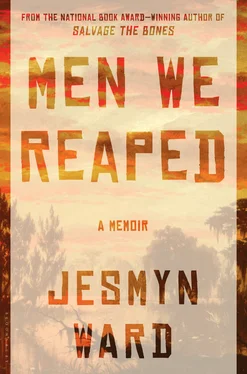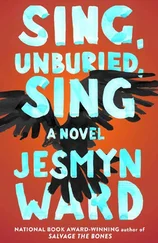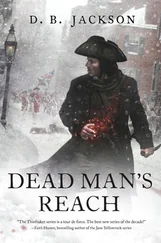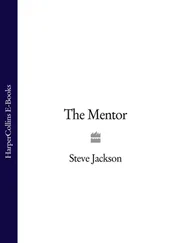Joshua died.
At my brother’s funeral, after the wake, after I walked up to the casket and glimpsed Joshua, who was powdery pale and awfully still (I thought: This isn’t my brother ), after I panicked at the lie of him lying dead, and after I sobbed through the service, hugging Charine, our skinny arms around each other, I walked to the podium and read a poem I’d written. I’ve since lost this poem, and I only wrote it because my mother asked me to, as part of the service. “I can’t do it,” I told her, “I can’t write a poem.” My mother asked me to pick out a picture for my funeral T-shirt, and I chose a picture of Josh and me when we were young, five and three, and we are sitting in the back of my father’s black Riviera. I am looking seriously at the camera, and my brother is asleep on my small shoulder, his hair blond in the flash of the camera. We would have taken that photo around the time he and I sat on the front steps of the small, high, boxy house, me hugging him, bats flitting overhead, our parents arguing and breaking things inside. My mother asked me what I wanted my brother’s funeral shirt to say, and I replied: “Nothing.” I did not wear the shirt to the church ceremony, or afterward at the repast at my mother’s house. I would wear it for the first time five years later, after Hurricane Katrina.
I can only remember one line from my elegy. Nothing about the line is original; I have since read it in other books. There is a common truth in its message, a hopeful refrain for those who remain. My voice broke when I read it to my family, to our friends, to the boys who would later lie in caskets, but who stood alive on that day in the back of the church.
He taught me love is stronger than death .
Eight months later, Nerissa called me. I’d been in New York City for five months then, and was living on a sofa in the West Village with wealthy friends I’d made in high school. It was 2001. Winter had broken, and tulips burst through grime-caked ground. It was the spring before the Twin Towers fell. I brought the phone with me into the small half bathroom off the living room, which was lined with ceramic tile. The girls who rented the apartment had begun taking Polaroids of their friends and taping them to the wall of the bathroom, so when I locked myself in it to privately speak with my sister, I had an audience, a sea of pale New York hipsters bearing the bored, poised, often beautiful faces of the rich. They looked at me.
“Mimi?”
“Yeah, I’m here.”
“Mama and Grandmama went to court today. Mama said when they read the verdict, she started crying.”
“What happened?”
“They sentenced the drunk driver who hit him to five years.”
“What?”
“They didn’t charge him with vehicular manslaughter. They charged him with something else. Leaving the scene of an accident.”
“I don’t understand.”
“Mama said the judge called her and Grandmama in there afterward, told them why they couldn’t charge him with manslaughter.”
“But why?”
“Mama said all she could do was cry.”
I began crying. All those faces on the wall were so still, so young. I hung up with Nerissa and called my college boyfriend and told him the verdict. I could hardly speak.
“What do you expect?” he said, impatient to return to work. “It’s Mississippi.”
All those eyes looked at me with such disdain. Here, a young woman with a perfectly symmetrical face and dark eyes, so beautiful it hurt to look at her. There, two boys shoulder to shoulder, each with one arm casually looped over the other’s shoulders, sandy hair, pointy jaws. My conversation with my boyfriend was short, over after he’d asked, “What do you want from me?” and I’d replied, “I want a hug,” and he’d said, “I have work to do,” which meant no. When I hung up the phone, I sat on the floor and hid my face in my hands.
The man had been drunk. The police had found he’d been in several bars, and also been drinking in the casinos. He’d swerved at Ronald’s sister, run her off the road, the night before he killed my brother. He’d hit Joshua from behind and had been going so fast that he’d swerved off Scenic Drive and his car had flown across two lanes of highway to land on the beach. That night, what had caused my brother’s wreck had been a mystery. The police thought he’d simply lost control of the car, but the next day, someone called the Pass Christian police department and reported a car on the beach. The drunk driver had staggered home after he hit my brother. By the time the police tracked the car to the owner’s house, it was the next day, and the driver was no longer drunk, and everything was cold. The drunk driver was in his forties and White. My brother was nineteen and Black. The man was arrested for and ultimately convicted of leaving the scene of an accident, which was a felony. He was sentenced to five years and ordered to pay my mother $14,252.27 in restitution. The man served three years and two months of his sentence before he was released, and he never paid my mother anything. Nerissa attended high school with his nephew, who attempted to apologize to her for his uncle. He always fucking up , she said he told her.
Five fucking years , I thought. This is what my brother’s life is worth in Mississippi. Five years .
In my search for words to tell this story, I found more statistics about what it means to be Black and poor in the South. Thirty-eight percent of Mississippi’s population is Black. It is one of six states where African Americans constitute at least a quarter of the population. 2In 2009, the poverty rate was greatest in the South, and in the South greatest in Mississippi, where 23.1 percent of the population lived below the poverty level. 3In 2001, a report by the United States Census Bureau indicated that Mississippi was the poorest state in the country, in part because there has been little money apportioned for rural development. The state has a median household income of $34,473. 4According to the American Human Development Project, Mississippi ranks dead last in the United States on the UN’s Human Development Index, a comparative measure of life expectancy, literacy, education, and standard of living. 5About 35 percent of Black Mississippians live below the poverty level, compared with 11 percent of Whites, and “about one of every 12 Black Mississippi men in their 20s is an inmate in the Mississippi prison system.” 6Recently, researchers at Columbia University’s Mailman School of Public Health found that poverty, lack of education, and poor social support contribute to as many deaths as heart attack, stroke, and lung cancer in the United States. 7These are the numbers that bear fruit in reality.
By the numbers, by all the official records, here at the confluence of history, of racism, of poverty, and economic power, this is what our lives are worth: nothing.
We inherit these things that breed despair and self-hatred, and tragedy multiplies. For years I carried the weight of that despair with me; it was heaviest right after Joshua died, when I lived and worked in New York City. In the morning I fought through crowds of people to get to the subway, to get a standing spot on the train, for my commute. I lived with rich White friends when I first arrived, slept on their antique sofa for five months, cleaned their apartment like a maid because I felt beholden, and walked their dog, which hated me. Next I moved in with my then-boyfriend, who charged me rent to sleep in the bed with him for the three months I stayed there. After that I moved in with an actor for nine months, and then with two girls I met through a friend.
And as I moved from place to place, I was wandering around the city, bewildered and depressed as I tried to find the basics: Laundromat, grocery store, subway station. In the evenings, I commuted home in empty, rattling train cars and daydreamed or fell asleep, missing my stop and getting lost in dirty tiled mazes. I was hurrying past boys bleeding to death on sidewalks from neck stabbings outside movie theaters off Times Square. I was walking past homeless women with knotty dreads, women who held cardboard signs that read: AIDS HOMELESS PLEASE HELP. I was fainting on the F train. I was riding the subway at midnight to nightclubs with my friends, where I drank until I stumbled into taxis at four in the morning: deliriously, wretchedly, wonderfully, blackout drunk. I was buying liters of Brazilian rum and dumping tablespoons of sugar in glasses and topping with ice and drinking the rum straight, fancying myself a connoisseur of the caipirinha, three nights a week. I was smoking weed with Jamaicans until I was stupid.
Читать дальше












